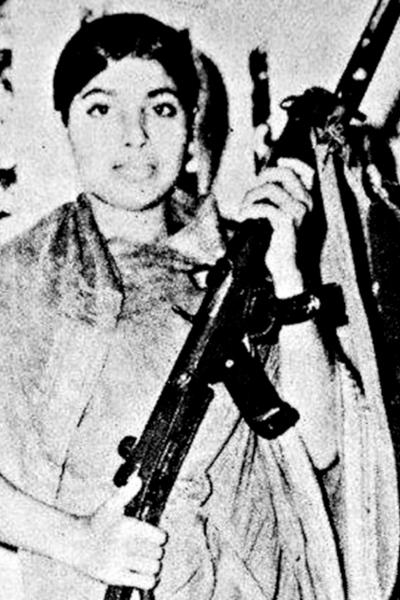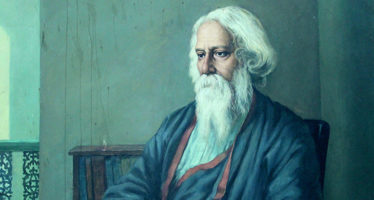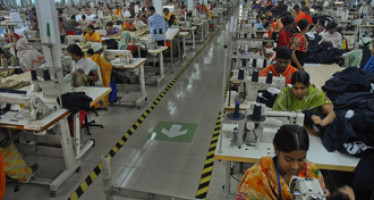SiTara’s Story – an inspiration to empower women

“Gender equality is an expression of thoughts and modes of policies of the government and agencies that have shaped the world destiny towards a higher and broader horizon of human advancement. But unfortunately, gender inequality is ingrained in our cultural, social behaviour and evolution of the political system and changes in such a way that needs an overhauling of the whole system for a well-coordinated development policies and programs for uplifting of the sense of societal values” –an Economist’s view.
Since birth of our nation as Bangladeshi, most of our male freedom fighters are well known to us who fought for Bangladesh Liberation War. Without their contribution, we could never be proud Bangladeshis. There are so many institutions and establishments after those great freedom fighters’ names. But how many of us know that we also have two female freedom fighters with legendary contributions to Liberation War of Bangladesh in 1971? These two great women are Sitara and Taramon Bibi.
To make a difference to the world of inequality – yes, our story begins with Sitara and Taramon. It begins with those who have been deprived, long forgotten women and were never sought after! Being the only female freedom fighters who have been awarded as “Bir Protik” in Bangladesh, each of them have greatly inspired us to name our mission towards empowering females as “SiTara’s Story”.
As part of our aim, SiTara’s Story identified mental health issues among young women in Bangladesh. Our story highlights “depression” to be the main cause of mental illness and disability for adolescent girls aged 12 to 19, which may cause self-harm or suicide. Serious self-harm or attempt to suicide is almost twice more likely to occur these days among school girls. We have many stories of these miseries and deprivation where the innocent girls are expressing a strong intent to die or not to be found or intercepted upon by others.
Our story tells about “Sathi” – a young Bangladeshi girl aged 14. Sathi was a student from Bagdi Gani High School studying at year 7 level. Like others, she also aspired to educate herself to come out of the corner to see the world. But Sathi wasn’t born with silver spoon in her mouth. Her dream had shattered when it came to the point of paying the exam fee of 80 taka only, which her mother could not afford to pay. Poor girl conveyed her inability to pay the amount to her school teacher, Alauddin. Alauddin, being mediaeval in nature, showed his barbaric demeanour to punish the 14 year-old girl just for her inability to pay the fee. His brutality forced her to hold her ears with hands crossing, in front of hundreds of students in an open ground and made her to say “I am sorry. I could not pay the fee”. The distressed young girl could not bear this humiliation and dishonour. After returning home, she allegedly hanged herself in her room from a wooden beam by making a noose around her neck with a piece of cloth. After a short while, she was found dead in her room.
This is one of thousand stories of agony in Bangladesh, where so-called powerful feudal men still prevail in our society to create gender inequality. The stories supposedly support our belief that these men provoke hopelessness, social isolation, despair among many females, and are the reasons behind these tragic incidents. We hear these stories of deprivation and humiliation every day, which, as a team, SiTara’s story can share and find a way out for them.
SiTara’s story is committed to enable changes of the environment for young girls with mental health conditions and remove stigma through awareness and institutional changes. The aim is to contribute to early detection of these issues and set a foundation for them, who later, can have great impact on nation building and economic productivity and be productive citizens. We are undertaking steps to address the issues on the global front through financial aid, openness and exchange of information and communication that have the potential of putting a brake in the growth of mental health stigma among young girls.
SiTara’s Story proudly introduces the two honourable female freedom fighters to the modern world of disgrace and miseries. Captain Dr Sitara was a Commanding Officer of the hospital known as “The Bangladesh Hospital”, with almost 400 beds under Sector 2 in 1971. The hospital not only catered to Bengali patients and wounded freedom fighters, it also served members of the Indian army and sought medical aid to the medical centre. Bir Protik Taramon Bibi fought against Pakistanis in the Liberation War in 1971 in Kurigram under sector 11. Si stands for Sitara Begum and Tara stands for Taramon Bibi. Sitara also means the morning star in English.
Please transfer your generous contribution to the following account:
Name: Sitaras Story Incorporated
BSB: 032778
ACC: 554756
Please put your name in the reference box.
Thanks for your generous support. For more information, please visit https://www.facebook.com/SiTaras-Story-352100195192339/?ref=bookmarks
Related Articles
রবীন্দ্রনাথ ও কিছু বাংলাদেশী
সবুজ, আমি তোমার বাংলাদেশের জাতীয় সঙ্গীত নিয়ে লেখার মন্তব্যের ঘরে লিখতে গিয়ে দেখলাম যে অনেক বড় হয়ে যাবে, তাই ভাবলাম
Labour Law 2013: Will it satisfy the US?
Labour Law 2013: Will it satisfy the US? By Barrister Harun ur Rashid Former Bangladesh Ambassador to the UN, Geneva
প্যারিসের চিঠি : প্লাস দো লা কনকর্ড – ওয়াসিম খান পলাশ
প্যারিসের প্রায় কেন্দ্রস্থলে অবস্থিত প্লাস দো লা কনকর্ড এলাকাটি এক কথায় অপূর্ব। এলাকাটি যেমন ঐতিহাসিক স্থান তেমনি ব্যস্ত। একটি এথলেটিক্স








